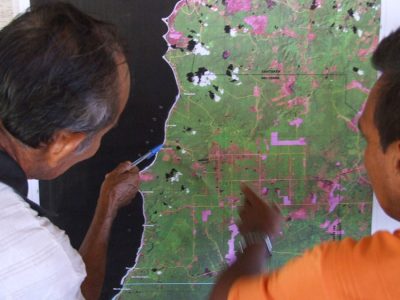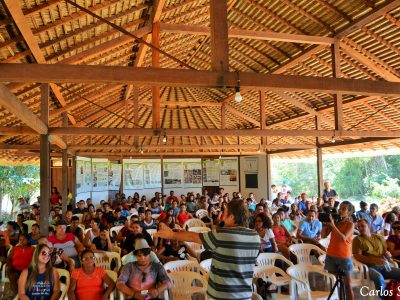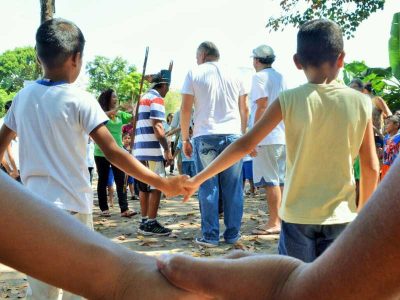TERRITORIAL DEVELOPMENT
Community Management
Community management is at the heart of all PSA initiatives, as it ensures that projects continue after implementation and thus contribute to community development models in sustainable territories.
Once communities have made improvements in land management and ensured the land rights of the traditional Amazon populations, the next challenge is developing its own management. Therefore, in addition to developing demonstrative projects and facilitating access to public policies, all efforts work to strengthen local and land organizations, both in the socio-political and economic arenas, so that the populations may proactively construct their own development.
The work involves several approaches, such as:
- Local and Territorial Development Plans – residents and their leaders are advised in the development of Local Sustainable Development Plans. Locally, the process usually involves leaders and groups formed by youth, women, teachers, midwives, family farmers and other actors within the communities. At the intracommunity level, it involves representative leaders of the assisted territories.
- Technical Assistance and Monitoring – during the implementation of actions, PSA aims to strengthen the representations of the territories (Settlements, Farmland and Conservation Units), beyond supporting the creation of new community groups and organizations. For example, it supports the creation and legal settlement of community groups and permanently advises Intercommunity Representation Organizations, such as the Federation of Communities of the Tapajós National Forest, the Organization of Associations of the Tapajós/Arapiuns Resex – Tapajoara, and the Lago Grande Federation. It is also a partner of rural labor unions from Santarém and Belterra. In addition to providing the necessary support, PSA promotes workshops and seminars on social rights, community organization and citizenship, associativism, cooperativism, among other topics.
- Participatory Planning: with stronger representation, the communities undertake participatory management of PSA projects, from planning to implementation and evaluation. The involves the creation of work groups, permanent forums and other structures.
- Local and Territorial Development Plans – residents and their leaders are advised in the development of Local Sustainable Development Plans. Locally, the process usually involves leaders and groups formed by youth, women, teachers, midwives, family farmers and other actors within the communities. At the intracommunity level, it involves representative leaders of the assisted territories.
Main actions
- Community management workshops for participatory planning of PSA initiatives and mapping of the demands of the communities and the territories;
- Assistance in creation of local associations, co-ops, federations, networks and community forums;
- Leadership training courses, as well as training on associativism and cooperativism;
- Seminars for debates and articulations of demands, policies and strategies of territorial development;
- Permanent forums for participatory management of PSA projects.

See also
Land Management
Networks and Collaboration
Dissemination and Replication of Experiences
Contact
- Av. Mendonça Furtado, 3979
- +55 93 3067-8000
- +55 93 99143-1091
- psa@saudeealegria.org.br
HOW TO HELP
Projeto Saúde & Alegria © 2020
Agência Fervo








